Nutrition plays a critical role in the success of alcohol & drug rehab programs. At West Coast Detox, we understand that proper nutrition is essential for repairing the body and mind after the ravages of addiction. Substance abuse often leads to severe nutritional deficiencies, making it imperative to focus on balanced diets and nutritional therapy as part of the recovery process.
Addressing Nutritional Deficiencies in Alcohol & Drug Rehab
Substance abuse commonly results in significant nutritional deficiencies
due to poor dietary habits, neglect of self-care, and the physiological impacts of drugs and alcohol. Many individuals entering alcohol & drug rehab at West Coast Detox suffer from malnutrition, which can impair immune function, cognitive abilities, and overall physical health. Specific deficiencies often observed include:
- B Vitamins: Chronic alcohol use can lead to a deficiency in B vitamins, particularly thiamine (B1), folate (B9), and B12. Deficiencies in these vitamins can cause severe neurological and cognitive issues.
- Vitamin C: Essential for immune function and tissue repair, a lack of vitamin C can result in weakened immunity and delayed healing processes.
- Magnesium: Magnesium deficiency is common in those with substance use disorders and can lead to muscle cramps, fatigue, and mental health issues like anxiety and depression.
- Zinc: Crucial for immune function and wound healing, zinc deficiency can impair these processes, leading to longer recovery times.
- Proteins: Proteins are vital for repairing tissues and producing neurotransmitters that regulate mood and behavior.
A comprehensive nutritional assessment is conducted upon admission to identify specific deficiencies and tailor dietary plans to individual needs.
Enhancing Physical Recovery in Alcohol & Drug Rehab
The physical recovery process in alcohol & drug rehab is profoundly influenced by nutrition. Proper intake of vitamins, minerals, and other essential nutrients is crucial for repairing bodily tissues, strengthening the immune system, and enhancing energy levels. At West Coast Detox, our dietary plans are designed to facilitate the body’s natural healing processes, ensuring that patients receive the nutrition they need to rebuild their strength and health. Specific protocols include:
- High-Protein Diets: Emphasizing lean proteins like chicken, fish, and legumes to support muscle repair and neurotransmitter production.
- Rich in Fresh Fruits and Vegetables: These provide essential vitamins and antioxidants necessary for detoxification and tissue repair.
- Whole Grains: Incorporating whole grains to provide sustained energy and stabilize blood sugar levels.
- Hydration: Encouraging adequate water intake to support detoxification and overall bodily functions.
Supporting Mental Health Through Nutrition in Alcohol & Drug Rehab
Nutrition also plays a vital role in supporting mental health during alcohol & drug rehab. The brain’s functioning and emotional stability are closely linked to the nutrients consumed. Omega-3 fatty acids, B vitamins, and antioxidants are known to improve cognitive function, reduce depression, and alleviate anxiety. At West Coast Detox, our nutritional program includes foods rich in these nutrients to help stabilize mood swings and enhance mental clarity. A well-nourished brain is better equipped to handle the emotional and psychological challenges of recovery. Specific protocols include:
- Omega-3 Fatty Acids: Found in fish like salmon, as well as flaxseeds and walnuts, to support brain health.
- Complex Carbohydrates: Including whole grains, fruits, and vegetables to stabilize blood sugar levels and improve mood.
- Hydration: Promoting the consumption of water and herbal teas to ensure proper hydration, which is crucial for mental clarity and overall brain function.
Get Your Questions Answered
Reach out today to get the answers you need about drug and alcohol detox. Our compassionate team is here to guide you through every step of the process and help you take the first step toward recovery.
Integrating Nutritional Counseling in Alcohol & Drug Rehab
Educational components, such as nutritional counseling, are integral to our alcohol & drug rehab program at West Coast Detox. Patients are educated on the importance of a balanced diet, how to make healthier food choices, and the long-term benefits of proper nutrition. Nutritional counseling helps patients understand how to sustain their recovery by maintaining healthy eating habits post-rehab. This knowledge empowers them to take control of their health and make informed decisions about their diets, contributing to a lower risk of relapse. Counseling sessions might cover:
- Meal Planning: Teaching patients how to plan balanced meals that meet their nutritional needs.
- Grocery Shopping Tips: Providing guidance on selecting healthy foods and avoiding processed items.
- Cooking Classes: Offering practical cooking skills to prepare nutritious meals.
Long-Term Benefits of Nutrition in Alcohol & Drug Rehab
Focusing on nutrition in alcohol & drug rehab provides long-term benefits that extend well beyond the initial recovery phase. Proper nutrition can lead to sustained physical and mental health improvements, making it easier for individuals to maintain sobriety. At West Coast Detox, we emphasize the development of lifelong healthy eating habits that support overall well-being. Patients learn to view nutrition as a key component of their ongoing recovery journey, which helps prevent relapse and promotes a higher quality of life. Long-term benefits include:
- Enhanced Immune Function: Better resistance to illnesses and infections.
- Improved Cognitive Function: Enhanced memory, focus, and decision-making abilities.
- Sustained Energy Levels: More consistent energy throughout the day, reducing fatigue.
Collaboration with Healthcare Professionals in Alcohol & Drug Rehab
Effective nutritional therapy in alcohol & drug rehab requires collaboration with healthcare professionals, including dietitians, nutritionists, and medical doctors. At West Coast Detox, our multidisciplinary team works together to create and implement personalized nutritional plans. Regular monitoring and adjustments ensure that each patient’s dietary needs are met, and any emerging issues are promptly addressed. This collaborative approach enhances the efficacy of the rehab program and supports optimal recovery outcomes. Collaboration includes:
- Regular Assessments: Frequent evaluations to monitor progress and adjust nutritional plans as needed.
- Interdisciplinary Meetings: Coordinating care between dietitians, medical doctors, and mental health professionals.
- Patient Feedback: Encouraging patients to share their experiences and preferences to tailor the nutritional program effectively.























